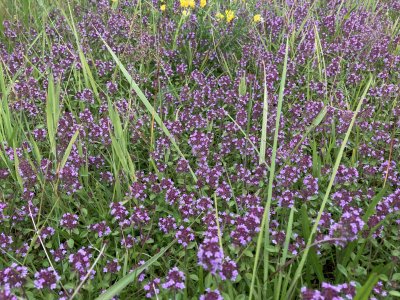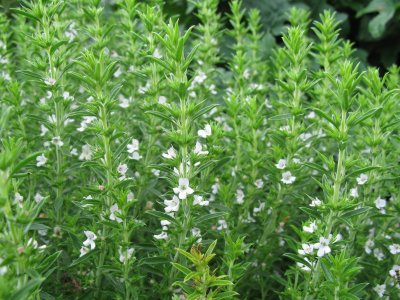Letter from Institute of Comp. Medicine on UK organisations
Education and training/
18.02.24
Letter from Institute of Comp. Medicine on UK organisations.
This letter below from the late Michael Endacott of the ICM, may seem out of
date, but in some respects it remains valid. Particularly in relation to trade
associations accepting LOWEST standards for qualifications. I intend therefore
to continue hosting his letter so that newcomers can see a bit more of the
history of our trade from someone other than myself. Michael was also very
anti some of the trade representatives he had to work with, he knew what an
inept bunch they were (are). I respected Michael more than most in
Complementary Medicine, and his death in 2005 was a great loss to our cause.
THE BRITISH GENERAL COUNCIL OF COMPLEMENTARY MEDICINE
20th April 2000. TO:
Essentially Oils, Charles Wells
IFA, June Gibbs
Raworth College, Maria Raworth
Essential Oils Trade Association, Michael Van Moppes
Butterbur and Sage, Bernie Hephru
The December 1999 issue of Essentially Oils Newsletter contained an article by
Bernie Hephrun that highlights the need to speak with one voice and evolve
regulation. There is also a report on the possibility of ISPA, the RQA joining
with the IFA under the common title of International Federation of
Aromatherapists.
The prospect of unity through a common register has been tried by a number
of therapies but it is a concept that can only work where the different levels of
skill and competence are identified for registration within the profession. This is
the approach of the BRCP –Aromatherapy Division (and all the other
autonomous divisions). Therefore, to the professional observer it is hard to see
practitioners qualified to the IFA and BRCP standards agreeing to appear on
the same listing as those accepting more limited qualifications such as the
Aromatherapy Organisations Council.
The National Occupational Standards (NOS) for Aromatherapy have been
rejected by the ICM/BGCCM, the British Register of Complementary
Practitioners (Aromatherapy Division) and the International Federation of
Aromatherapists because they reflect the LOWEST LEVELSof competence.
However, it is just these NOS that have been accepted by the Aromatherapy
Organisations Council, the British Complementary Medicine Association and the
Independent Care Organisations (ICO) which is now part of the Training
Organisations for the Personal Social Services.
The BRCP and IFA require BEST PRACTISE. Practitioners must have the
knowledge and skill to diagnose within their competence. Other Registers may
be prepared to accept the lowest common standard but the ICM does not
believe this is in the public or professional interest.
In 1993 the ICM launched a plan for three distinct levels of practise and
registration but those involved with NOS did not act on this proposal. The
standard of ‘best practise’ comes at the head of a career pathway common to
most professions. For a single national register like the BRCP to serve both
public and practitioners alike, the variations must be created with the different
services in mind and each level of service identified accordingly.
The Qualifications and Curriculum Authority (QCA) was aware of the discontent
and had accepted the ICM/BGCCM suggestion of a review of the NOS in
Aromatherapy, Reflexology and Hypnotherapy. The QCA stated in a letter that
it hoped everyone would co-operate with the review so that a consensus could
be achieved.
The general problems which must be overcome are exemplified by
Aromatherapy. The International Society of Professional Aromatherapists
(ISPA) used to support the ICM/BGCCM and was aware of the review of the
NOS but ISPA Chairman, Ian Smith advised the ISPA Council to withdraw. Had
ISPA agreed to take part in the review, it would have meant that the structure
and contents of ISPA courses and the qualifications of its teachers would have
been be compared with other registers such as the BRCP and IFA. It is
understood that ISPA is trying to upgrade its standards at this time. However,
the ICM has had experience of examining ISPA applicants wishing to join the
BRCP and, whilst a few have been successful, the majority have not. The
review would have been a time to clarify the ISPA position.
For a long period of time the ICM has turned to the Aromatherapy
Organisations Council (AOC) and the Aromatherapy Trade Council to find an
answers on questions of policy and management with special emphasis on
quality assurance. So far, neither organisation has answered any
questions satisfactorily.
Future professional standards.
Aromatherapy as either a beauty therapy or a medical treatment must have
standards appropriate to the services provided and practitioner status. This is
why the failure of the AOC and all those involved with the Independent Care
Organisations to ensure that the Functional Map was agreed and published
prior to proceeding with the NOS has caused so many problems. The fact is,
Healthwork UK has admitted the Functional Map was never agreed or published
and this is why the standards created from it must be treated with caution. . In
fact, every discipline and therapy will need to develop an education and career
structure that is a correct reflection of the Functional Map for the
Complementary sector. This is one aspect of the ICM/BGCCM review.
The ICM/BGCCM currently has nearly 1,000 courses, colleges and
organisations including 79 registers co-operating with the review. There may
be others that feel, like ISPA, that they do not wish to take this path but that is
for them to decide. However, everyone is welcome to try the proposed ICM
programme and evaluate the benefits. The proposal which surely cannot work,
is the AOC approach with a single listing including all names irrespective of
qualifications.
EU Directive R65 – Hazard warning of hydrocarbon content in essential
oils.
It has been said that essential oils must carry hazard warnings if the product
contains 10% or more of hydrocarbons. Enquiries suggest this may not be
correct.
It is understood that R65 requires companies selling potentially hazardous
substances to ‘self-assess their products’ to determine their response. The
British Essential Oil Trade Association has issued a booklet to its members
laying down guidelines on how to interpret the new regulation. Members of
BEOTA deal with the transportation of large quantities of essential oils whereas
retail suppliers of aromatherapy products selling to practitioners and the public
deal with small sealed bottles. It is hard to see this latter group feeling the
need to designate a very small bottle as a hazard even if it contained 10% of
hydrocarbon.
Contacts with pharmaceutical businesses retailing essential oils suggests they
consider aromatherapy products are outside the regulation.
House of Lords Enquiry.
The ICM has submitted a proposal to regulate Complementary Medicine as a
unified profession that treats the vital force and spirit of both man and
animals. This makes it different from the NHS. The ICM proposal for a single
Act would place Complementary Medicine into a similar professional category
as Dentists and NHS funds should be available to purchase treatments whether
given in the hospital or private Complementary clinic.
The ICM approach also means that multi-discipline practitioners pay one
registration fee for any number of qualifications and one payment for
insurance. The Osteopaths are to pay £750 annual membership of the General
Osteopathic Council and the British Acupuncture Association are believed to be
charging £400per annum.
Imagine a Naturopath who is registered to practise Homoeopathy, Reflexology,
Aromatherapy, Diet, Nutrition, Bach Remedies, Herbal Medicine, Massage,
Traditional Chinese Medicine and Counselling. This would involve ten
different Acts under the current proposals and the annual payment
would have to be £7,500 according to the Osteopathic scale.
The BRCP expects to charge about £100 per annum plus one payment
for insurance irrespective of how many disciplines are practised.
This seems to be the most cost effective and sensible way to regulate and
develop the unified profession of Complementary Medicine. Each division can
retain its autonomy but be part of a united voice when appropriate.
REGISTERED UNDER CHARITIES ACT 1960 No1043725. INCORPORATED COMPANY No
29917.
REGISTERED OFFICE : DEVONSHIRE HOUSE, 60 GOSWELL ROAD, LONDON SE1
Source and copyright: aromamedical.org
482
More posts


